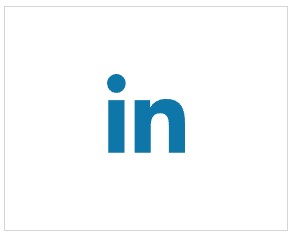Contact us now for immediate assistance!
We are in the business of helping youget what you are entitled to.
OR
Call 800-367-1174
Services That We Provide Our Clients
Our attorney’s expertise covers a wide range of practice areas. Whether the claim involves fraud, civil theft, and conspiracy, allegations of or commercial and corporate transactional disputes, The Needle Law Group has litigated it. The firm’s goal is to achieve the best possible results for our clients at a fair cost. Our clients appreciate the cost flexibility associated with a smaller boutique firm. Our approach to case management begins with an early, aggressive, thorough investigation of the facts and any unique legal principles which may develop. Then you and the firm are able to make an informed and realistic evaluation of the merits. When requested, a litigation plan and case budget are prepared to seek to accommodate the mutual objectives.
Florida Statewide Services
Including but not limited to such Florida cities and counties as: Miami, Fort Lauderdale, Palm Beach, Miami Dade, Miami Beach, Kendall, Coral Gables, Hollywood, Deerfield Beach, Hillsboro, Plantation, Ft. Myers, South Beach, Dade County, Broward County, Palm Beach County, South Florida and many more.
List of Services
Collections Action is important. If you are not getting paid on what you are owed, whether an account receivable, promissory note, unpaid professional fee or other debt, the party that owes you may be having financial problems. Our goal is to take immediate action because assets may not be available to collect tomorrow.
Aggressive, dependable and effective is how to proceed. You are in business to make money and we are in business to help you get paid what you are owed. We have been handling collection matters since 1996 and are well versed on available options for you. Learn More
Business & Commercial Litigation
At our law firm we have experience with complex and commercial business litigation and disputes, such as:
We practice in the field of business litigation who take pride in the lawsuits we file. We take pride in the success that we have achieved in Florida’s state, federal and appellate courts. Our confidence in our ability to go the distance in every case will come through from the moment you bring your business litigation case to us.
Frankly, all business and commercial litigation cases are collections cases. Lawsuits are mostly about getting money or recovering assets. Financial restitution is part of a business’s income stream sometime. We litigate to get a judgment handle what is often the most challenging phase of a case; collecting on the judgment. Learn More
Wage & Bank Account Garnishment
After a judgment is entered against a debtor, one way to collect is to garnish wages or bank accounts. Our efforts are effective and experienced and have taught us how to avoid common mistakes.
The first step in garnishment actions is to find all wages and bank accounts available. We have access to resources that allows us to locate where the money is being deposited or was a person is employed. Discovery pleadings also allow us to investigate and locate banking and income sources for debtors.
After we have found the income or deposit source account, our action will be aggressive. We will submit the proper paperwork with the court (obtaining a writ of execution and attachment, when necessary, to enforce its judgment), serve the bank or the employer, notify the debtor and get the judgment in the garnishment. Debtors can claim an exemption or many exemptions seeking to exclude themselves from the garnishment process or to protect their money or assets. We have experience in contesting these claims of exemption of disputes. Learn More
Writs of Execution and Replevin
If your customer stops paying for financed or leased items like equipment or vehicles, and your company cannot regain possession of those items, we employ the legal process to take back the equipment, trucks, or cars to our client. We will use the same effective and aggressive techniques to obtain the collateral securing promissory notes and commercial or personal loans.
When a judgment has been entered, our firm can execute on the debtor’s assets, whether it is equipment, inventory, or personal property allowed by law. We have experience throughout Florida obtaining a writ of execution and coordinating the lawful seizure of assets with the sheriff. If applicable, the sheriff will coordinate a sale to liquidate assets, and proceeds get applied to your judgment. Learn More
Collecting & Domesticating Out-of-State Judgments in Florida
If you hold or have been awarded a judgment that was issued in another state and your debtor is located in Florida or has assets, either real or personal property located in Florida we have experience in domesticating and executing on the foreign or “sister state” judgment.
The first step that needs to be taken is having the out-of-state judgment domesticated. By domesticating a judgment , it is made enforceable in Florida. All remedies available to collect Florida judgments are now available.
Once a judgment is domesticated, our firm can take all necessary steps to collect on the judgment, including wage and bank account garnishment.
Florida’s statutory law requires that an exemplified out-of-state judgment first be recorded in the county in which the debtor resides and/or has any property. An exemplified judgment is a copy of a judgment from another state with a certificate attached. The purpose of the certificate and signatures is to validate and authenticate that foreign judgment.
Once the judgment is recorded in the proper county, and the clerk of court sends notice to the debtor advising that an out-of-state judgment has been recorded, the creditor may not begin any collections efforts to execute on the judgment until 30 days after the notice to the debtor has been mailed out by the clerk of court. Florida statutory law gives the debtor that thirty (30) day window in which to file an action challenging the validity of the judgment. If no such action is filed within the thirty (30) days, the creditor is free to begin collection efforts, including garnishing wages or bank accounts and executing on assets.
All of the 67 counties in Florida have similar but not the same procedure when it comes to recording an out-of-state judgment. Most only require the fee to record the judgment and send out the notice. However, some counties do require that a case be filed at the same time the judgment is recorded. A case will ultimately be filed; however, in the event, the creditor chooses to execute on the judgment. A case number is necessary for the clerk of the court to issue writs of execution, attachment, and garnishment as well as for the scheduling of any depositions to review a debtor’s assets.
A creditor may also file a lawsuit on the foreign judgment and forego the statutory method to domesticate the foreign judgment. In that case, the creditor files an action and asks the court to recognize the foreign judgment in Florida. However, this method usually takes more time than the statutory method. With the statutory method to domesticate a judgment, the creditor may begin collections thirty (30) days after the notice is mailed to the debtor. Learn More
Discovery in aid of Execution of Existing Judgments
Whether your judgment was obtained by our attorneys or another law firm, or whether the judgment was a foreign judgment that was domesticated (a judgment from another state that is filed in Florida) the process is what we can help you navigate to determine if any recovery is possible. Collecting on a Florida Judgment can be problematic, and without the assistance of our attorneys, you could run in dead ends. The Florida legal system permits the Plaintiff to bring the defendant in for a post-judgment debtor examination or deposition. The creditor is permitted to subpoena the defendant or defendant’s corporate representative to appear and answer questions or produce documents and information relating to their assets or income sources. A subpoena can be utilized to command the defendant to appear with documents such as tax returns, bank account statements, and vehicle or vessel ownership. We can also subpoena information from third parties such as banks, employers, other creditors, and anyone having knowledge about the debtor’s asset or finances.
In situations where the Defendant is not cooperative, we may be able to file a motion to compel, motion for contempt, order to show causes, and other motions to obtain an order from the court to force the defendant to appear and/or produce documents. The court has the authority to actually issue an arrest order if a defendant continues to disobey a court order to appear. The Florida Judgment is good for 20 years (however, the lien and execution are shorter periods and must be renewed). Learn More
Levy/Attachment Real Property
Levy is the process of seizing a judgment debtor’s property to pay the judgment debt. In Florida, the sheriff’s department levies the property. The sheriff’s department sells the levied property in order to pay the creditor.
The sheriff’s department sells the levied property in order to pay the creditor.The sheriff can seize personal property of the debtor such as cars, horses, boats, furniture and jewelry, real property such as land and buildings owned by the debtor however be aware that under Florida law there are some exemptions, to wit; an individual may choose to exempt one motor vehicle worth $1,000 or less; and one additional personal property item worth $1,000 or less. Corporations and partnerships do not have any exemptions. The sheriff cannot seize an individual’s home or homestead or ay property that is leased or rented by the judgment debtor.
First, we must petition for and obtain a Writ of Execution. Then we must deliver the Writ to the appropriate sheriff and pay the fees associated with the execution. This requires a deposit and instructions for Levy, which is a list describing what is subject to be seized and stored. The sheriff will sell the property at a public auction to the highest bidder (which could be you if you want). There are perquisites that you must perform before the sheriff can sell any property. A search of court records and UCC records to determine that there are no other or prior liens or existing judgments against that debtor, affidavits must be provided to the sheriff, and an advertisement must be placed in the local papers once all the proper notices have been sent.
Once the sheriff sells the seized property at auction, the sheriff’s department will distribute the money after deduction their costs, the sheriff pays you $500 for your costs, regardless of the amount you actually spent. If anyone else obtained a judgment lien against the debtor, the sheriff’s office would pay all of the creditors in the order their judgment liens were filed. If the sheriff’s department disburses all of the money before getting to you, you will not receive any payment. If there are no other judgment liens against the debtor, you will be paid first. Remaining funds will be returned to the debtor. Learn More
Proceedings Supplementary
A judgment debtor may transfer all of its assets to a third party before the judgment is even obtained. The judgment debtor may close its doors and reopen an identical business with a new name and new corporate identity. Do we represent creditor’s in their efforts to proceed and collect on its judgment against third parties?
Florida statutes allow a creditor to set aside transfers made by the debtor to third parties and authorizes collection actions against a new business or entity that is merely a continuation of the judgment debtor. This process is called “proceedings supplementary” and allows the creditor to seek collection against the third party who received the transfer in the same case in which the judgment was entered. The statute also allows for the court to require that the third-party recipient turn over any of the judgment debtor’s assets to the creditor toward satisfaction of the judgment. Proceedings supplementary also provides a remedy by which a creditor can seek to collect from a new business that is merely a continuation of the debtor. Learn More
Piercing the Corporate Veil
Companies cannot just disappear, but they can go out of business, change names or dissolve and often form a new business. Does their corporate debt also disappear when these events occur?
The answer is no. We have been handling complex corporate debt collections matters for clients throughout Florida since 1996. Maybe a new entity formed in the wake of a previous business closing down, and often the law provides the remedy for just such a situation. We will proceed against the remaining or new entity if the law allows.
This process is called proceedings supplementary. As long as we are able to show a relationship between the old entity and the new entity, we can try and collect. Learn More
Issuing-of-state Subpoenas
Are you facing the complex task of issuing an out-of-state subpoena in Florida? The Needle Law Group has the expertise to guide you through the process. We ensure strict compliance with Florida’s Uniform Interstate Depositions and Discovery Act (UIDDA), helping you avoid potential pitfalls that could render your subpoena unenforceable. Our experienced team will assist you in submitting the foreign subpoena to the appropriate county clerk and managing the issuance of the Florida subpoena. We’ll also handle proper service and provide support if enforcement or objections arise. Learn More .
Commercial and Business Practice Areas:
You can engage us for every legal issue that you may have, including:
DISCLAIMER
The hiring of a lawyer is an important decision that should not be based solely upon advertisement. Before, you decide, please ask us to send you free written information about our qualifications and experience. Should you choose to engage this firm to represent you or your company in any matter, we will forward to your attention a claim authorization/retainer agreement allowing this firm to represent your interests in any matter and explaining all terms and conditions of the representation.
Before we can proceed with any claim on your behalf, we must receive the claim authorization form mentioned above and you may be required to forward to us, any additional paperwork or information necessary to effectuate your claim. The Rules Regulating the Florida Bar [4-1.5(f)(2)] require that contingent fee agreement must be signed. ( Please Read Our Privacy Policy ).





